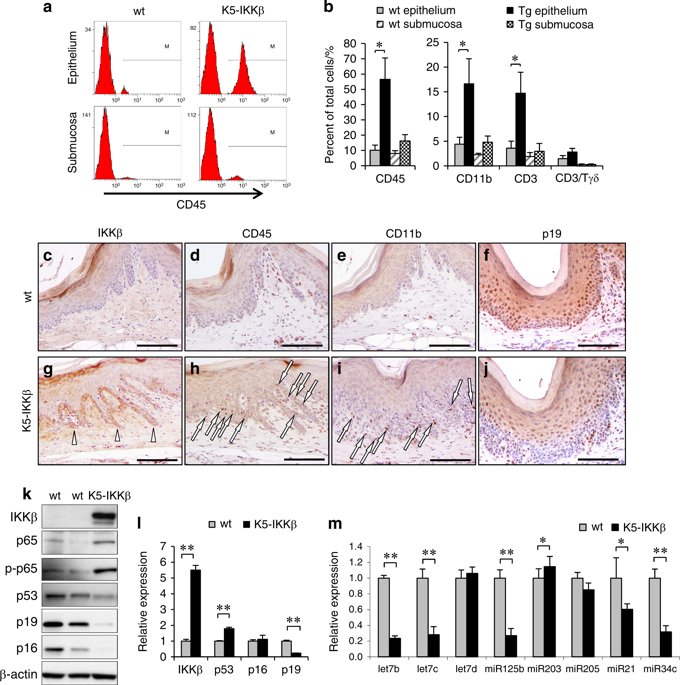当前位置:
X-MOL 学术
›
Int. J. Oral Sci.
›
论文详情
Our official English website, www.x-mol.net, welcomes your
feedback! (Note: you will need to create a separate account there.)
IKKβ overexpression together with a lack of tumour suppressor genes causes ameloblastic odontomas in mice.
International Journal of Oral Science ( IF 10.8 ) Pub Date : 2020-01-02 , DOI: 10.1038/s41368-019-0067-9 Angustias Page 1, 2, 3 , Ana Bravo 4 , Cristian Suarez-Cabrera 1, 2 , Raquel Sanchez-Baltasar 1, 2 , Marta Oteo 5 , Miguel Angel Morcillo 5 , M Llanos Casanova 1, 2, 3 , Jose C Segovia 6, 7 , Manuel Navarro 1, 2, 3 , Angel Ramirez 1, 2, 3
International Journal of Oral Science ( IF 10.8 ) Pub Date : 2020-01-02 , DOI: 10.1038/s41368-019-0067-9 Angustias Page 1, 2, 3 , Ana Bravo 4 , Cristian Suarez-Cabrera 1, 2 , Raquel Sanchez-Baltasar 1, 2 , Marta Oteo 5 , Miguel Angel Morcillo 5 , M Llanos Casanova 1, 2, 3 , Jose C Segovia 6, 7 , Manuel Navarro 1, 2, 3 , Angel Ramirez 1, 2, 3
Affiliation

|
Odontogenic tumours are a heterogeneous group of lesions that develop in the oral cavity region and are characterized by the formation of tumoural structures that differentiate as teeth. Due to the diversity of their histopathological characteristics and clinical behaviour, the classification of these tumours is still under debate. Alterations in morphogenesis pathways such as the Hedgehog, MAPK and WNT/β-catenin pathways are implicated in the formation of odontogenic lesions, but the molecular bases of many of these lesions are still unknown. In this study, we used genetically modified mice to study the role of IKKβ (a fundamental regulator of NF-κB activity and many other proteins) in oral epithelial cells and odontogenic tissues. Transgenic mice overexpressing IKKβ in oral epithelial cells show a significant increase in immune cells in both the oral epithelia and oral submucosa. They also show changes in the expression of several proteins and miRNAs that are important for cancer development. Interestingly, we found that overactivity of IKKβ in oral epithelia and odontogenic tissues, in conjunction with the loss of tumour suppressor proteins (p53, or p16 and p19), leads to the appearance of odontogenic tumours that can be classified as ameloblastic odontomas, sometimes accompanied by foci of secondary ameloblastic carcinomas. These tumours show NF-κB activation and increased β-catenin activity. These findings may help to elucidate the molecular determinants of odontogenic tumourigenesis and the role of IKKβ in the homoeostasis and tumoural transformation of oral and odontogenic epithelia.
中文翻译:

IKKβ的过表达加上缺乏肿瘤抑制基因会在小鼠中引起成釉细胞牙本质瘤。
牙源性肿瘤是在口腔区域中发展的异质性损伤组,其特征是形成分化为牙齿的肿瘤结构。由于它们的组织病理学特征和临床行为的多样性,这些肿瘤的分类仍在争论中。诸如Hedgehog,MAPK和WNT /β-catenin途径的形态发生途径的改变与成牙本质病灶的形成有关,但是许多这些病灶的分子基础仍然未知。在这项研究中,我们使用转基因小鼠研究了IKKβ(NF-κB活性和许多其他蛋白质的基本调节剂)在口腔上皮细胞和成牙组织中的作用。在口腔上皮细胞中过表达IKKβ的转基因小鼠在口腔上皮细胞和口腔粘膜下层均显示免疫细胞的显着增加。它们还显示出对癌症发展很重要的几种蛋白质和miRNA表达的变化。有趣的是,我们发现口腔上皮和牙源性组织中的IKKβ过度活跃,加上肿瘤抑制蛋白(p53或p16和p19)的缺失,导致牙源性肿瘤的出现,可以归类为牙釉质性牙本质瘤,有时伴有继发性成釉细胞癌的病灶。这些肿瘤显示出NF-κB活化和β-catenin活性增加。
更新日期:2020-01-02
中文翻译:

IKKβ的过表达加上缺乏肿瘤抑制基因会在小鼠中引起成釉细胞牙本质瘤。
牙源性肿瘤是在口腔区域中发展的异质性损伤组,其特征是形成分化为牙齿的肿瘤结构。由于它们的组织病理学特征和临床行为的多样性,这些肿瘤的分类仍在争论中。诸如Hedgehog,MAPK和WNT /β-catenin途径的形态发生途径的改变与成牙本质病灶的形成有关,但是许多这些病灶的分子基础仍然未知。在这项研究中,我们使用转基因小鼠研究了IKKβ(NF-κB活性和许多其他蛋白质的基本调节剂)在口腔上皮细胞和成牙组织中的作用。在口腔上皮细胞中过表达IKKβ的转基因小鼠在口腔上皮细胞和口腔粘膜下层均显示免疫细胞的显着增加。它们还显示出对癌症发展很重要的几种蛋白质和miRNA表达的变化。有趣的是,我们发现口腔上皮和牙源性组织中的IKKβ过度活跃,加上肿瘤抑制蛋白(p53或p16和p19)的缺失,导致牙源性肿瘤的出现,可以归类为牙釉质性牙本质瘤,有时伴有继发性成釉细胞癌的病灶。这些肿瘤显示出NF-κB活化和β-catenin活性增加。











































 京公网安备 11010802027423号
京公网安备 11010802027423号